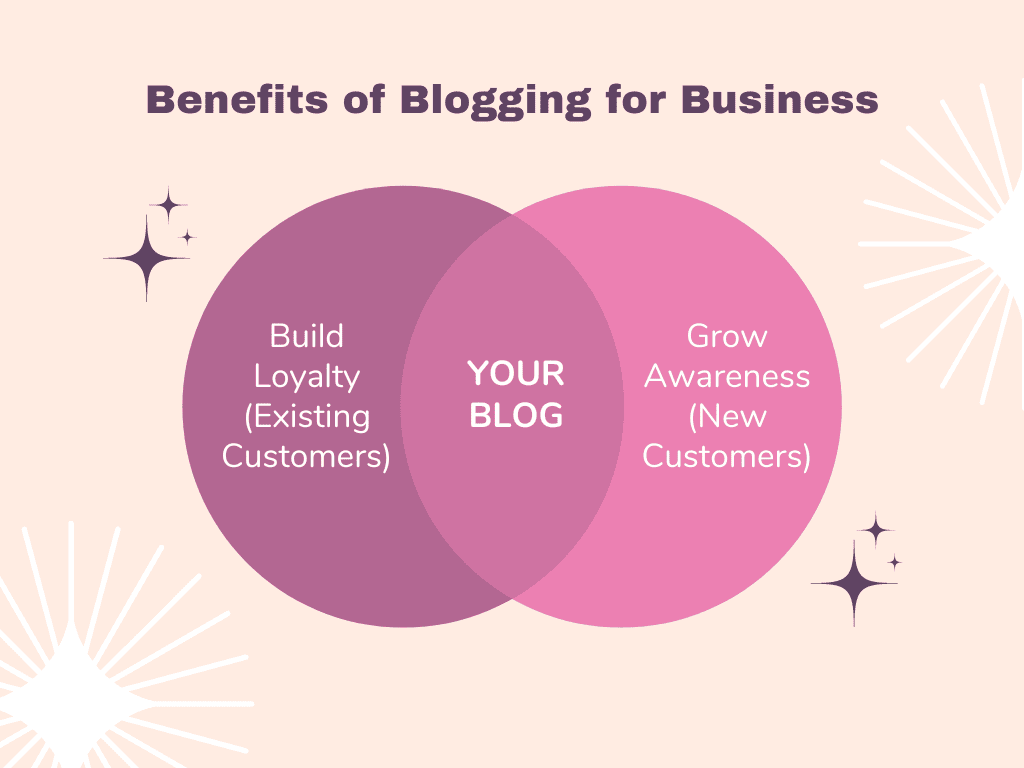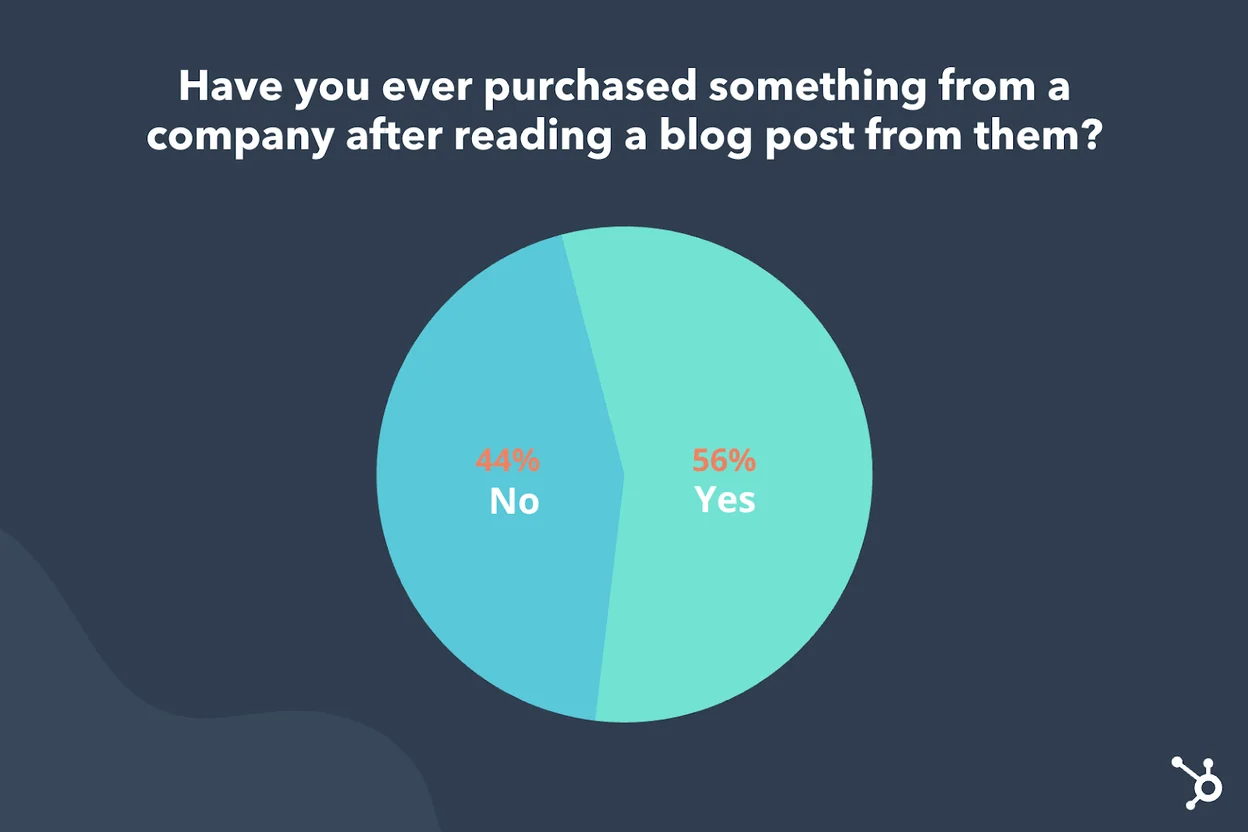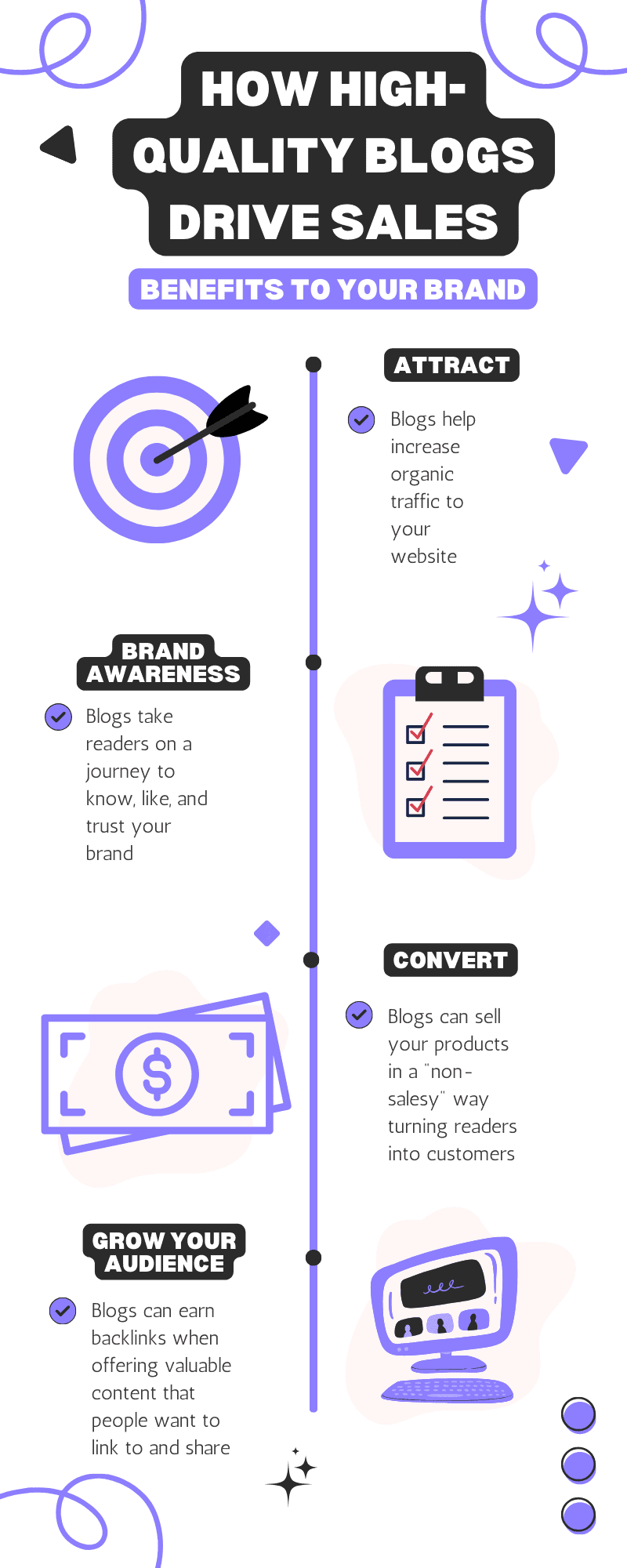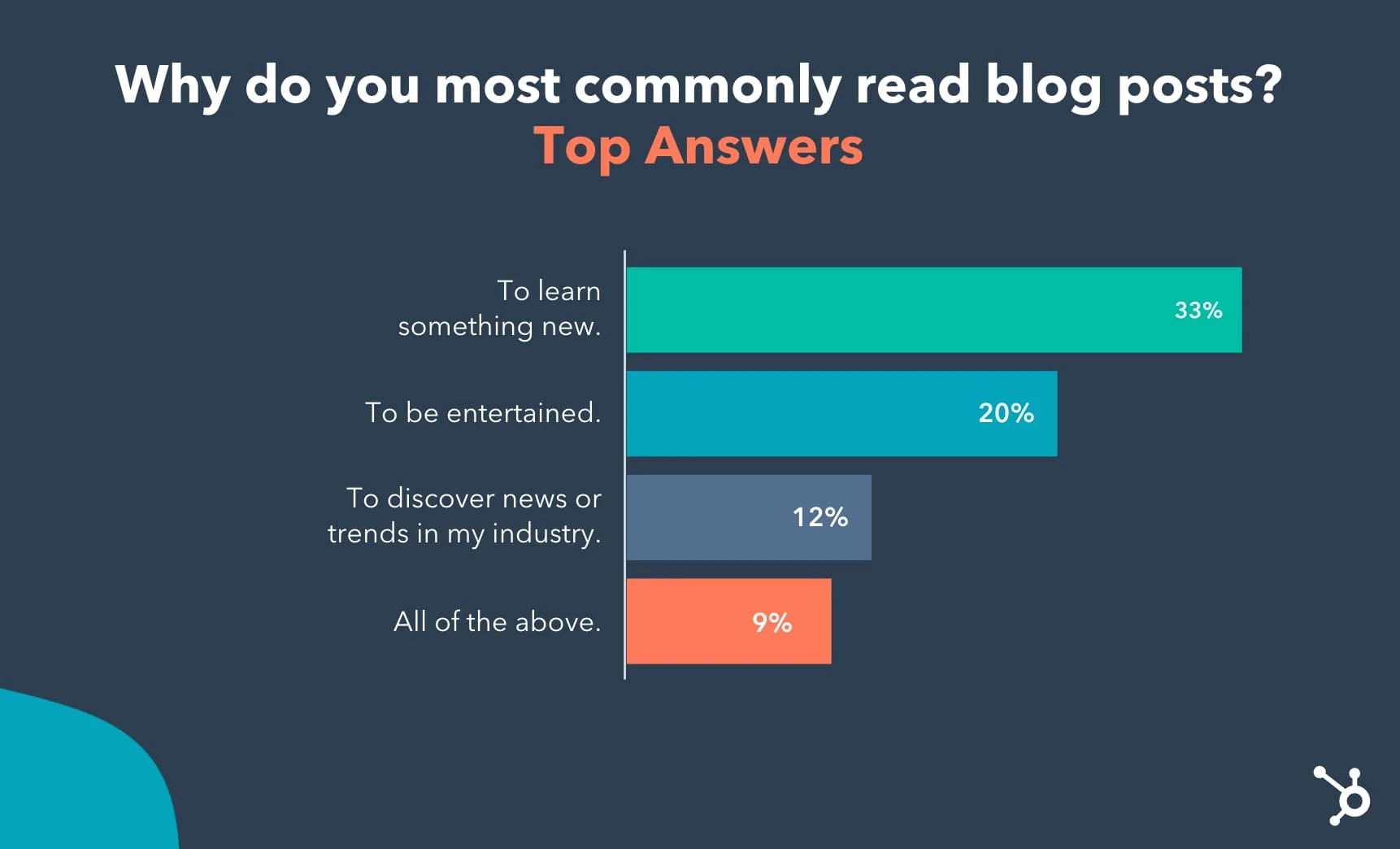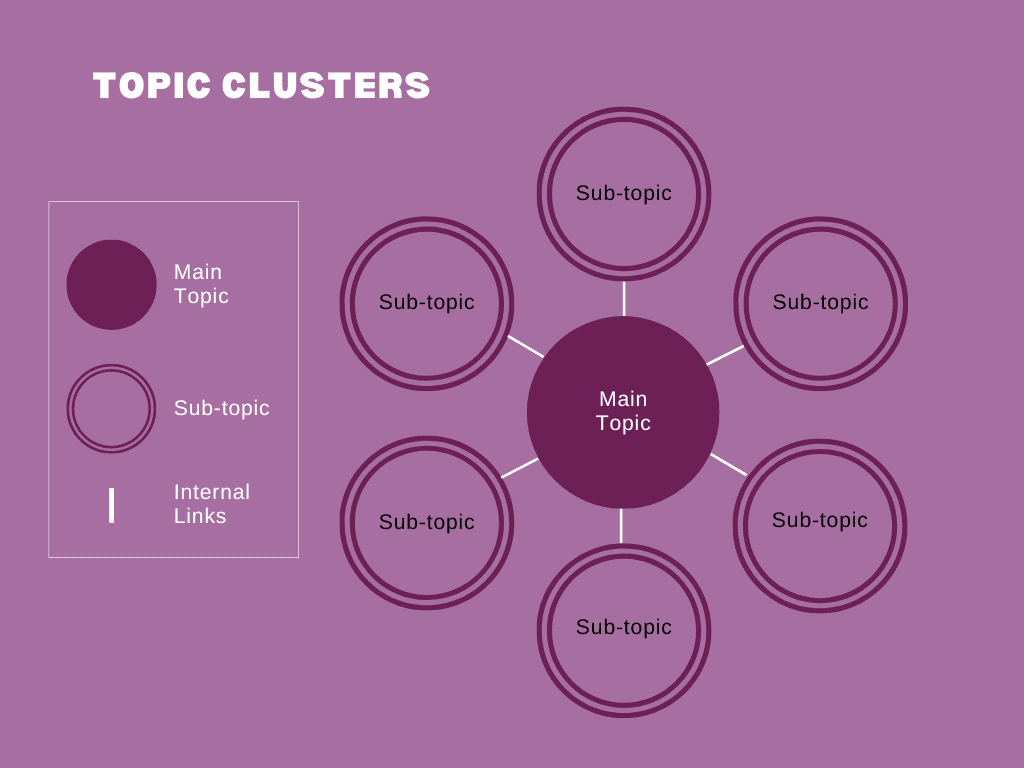
Benefits of Blogging for Business: Blog Writing Tips to Help Your Brand Stand Out
Learn how writing high-quality blogs and incorporating SEO increases conversions and brings traffic to your e-commerce website
Too many blogs are missing the mark
You’ve probably come across blogs that look enticing to read. They have catchy titles that make you think, “Maybe I’ll learn something.” So you click the link. But—cue the sad trombone music—you get zero value from the article. Many e-commerce businesses publish blogs but they don’t always understand the potential and value of investing their efforts into making them good! Instead they rush to churn out new content for the sake of content. Not only is it a waste of time for the business and the reader, it takes away the brand’s credibility.
You can feel and taste the difference
If blogs were food, then bad blogs are stale (say nothing new), bland (language is dull and boring), and contain no substance (don’t benefit the reader). It’s like having eaten an entire loaf of processed white bread. After you’ve read a weak blog article, you feel bloated, but not satisfied.
Good blogs, on the other hand, are fresh, have a distinct on-brand flavor, and contain value rich information served up in ways that stimulate and delight. A good blog satisfies your hunger to achieve a goal or learn more about a topic, while satisfying your craving for entertainment and novelty. And after you’ve read a good blog, you want to share it to your network—to give your friends a taste of that good stuff too!
Creating quality blogs requires research, strong writing and editing skills, and creativity—but it’s an investment into your sales funnel. Blogs have the power to nurture your existing customers and build brand awareness—attracting new eyes to take notice of your brand in a “non-salesy” way.
As an e-commerce business your objective is to bring people into your website, to get people browsing and eventually buying, right? Putting in the work to create value rich blogs will make your marketing more efficient in the long-term.
Do you get stuck on email marketing? What should you write to recipients on your weekly or monthly newsletters? Providing links to new blog articles is a great way to attract your subscribers to visit your website.
Do you want to expand your reach to bring awareness of your brand to new groups of people? Instead of only relying on paid advertising such as Google Ads, blogs help increase organic traffic to your website—when they show up on search engine results because they contain topics and keywords that are relevant to the interests of your target audience.
Speaking of increasing your reach, ensuring your blogs have relevance and value is also a must for your link building strategy—popular and credible websites will link to your blog and funnel their audiences into your brand’s website.
If you want to stand out in an overcrowded marketplace, stay on-brand and help your target audience get to know, like and trust your brand in order to drive conversions—then stick around—because this blog about blogs is written just for you!
In this article you will learn:
- How creating blogs can benefit your business
- What fashion e-commerce brands should write about
- Tips on crafting high-quality, one-of-a-kind blogs that will stand out and build trust
- How to incorporate Search Engine Optimization (SEO) into your blogs to gain more visibility on search engine results and increase website traffic
What are the benefits of blogging for business?
Every blog post your business publishes serves as a marketing piece. A quality blog can help your business drive conversions. Each is a touch point where you can gain loyalty from existing customers and influence purchases from new customers.
Blogs build and maintain relationships with your target customers
You know that friend who keeps an online journal about their deep existential ponderings or gripes about society? Sure, while those posts are considered blogs—blog articles within the e-commerce world are definitely not those! A company’s blog posts aren’t musings, they’re powerful pieces of MARKETING. Take it from our friend Allison Bran, Founder and CEO of REX Marketing + Design Inc.. In a recent interview about brand strategy, Allison explained that “Brand is like a third entity that exists between the business and its customers. It’s the relationship between the company and the customer.”
Marketing is one component of the overall brand strategy that involves the mechanics of getting your brand narrative across to your target audience. This includes content marketing activities such as newsletter to existing and potential customers on your email list, advertisements, social media posts, and of course—blog writing.
Valuable blog content can lead to more sales
Let’s state the obvious, as a business owner, you want your marketing efforts to go toward generating revenue—because in business, you’re here to make money!
Therefore, is blogging for your business really worth it? Consider this survey by Hubspot:
“When we surveyed 300 consumers via Lucid and asked, ‘Have you ever purchased something from a company after reading a blog post?’ a whopping 56% said, ‘Yes.’ Furthermore, according to our trends report, blog posts are among the media formats with the highest ROI, along with videos, images, and podcasts.”
Image source: Hubspot article, Do Blog Posts Actually Lead to Purchases
Blog articles are vehicles that take readers on a journey to know, like, and trust your brand—and ultimately make a purchase, tell their friends, and keep coming back for more!
High-quality blogs, when planned, researched, and written properly will build loyalty from existing customers while also influencing new audiences to become customers.
What should my brand start blogging about?
Now that we’ve seen data to support that blogs can convert leads to make purchases, it’s time to start hammering out 1500 word posts to brag about your brand and show how life-changing your products are, right? Wrong! Many fashion brand founders often fall into “sales mode” when writing their own blogs—accidentally morphing them into long winded sales pages. Don’t make this mistake with your blogs.
Why do people read blogs?
In a Hubspot Survey that asked consumers why they read blogs, one-third of respondents read blog posts to "learn something new” and about 20% for entertainment. In contrast, only four percent of consumers said they read blogs to learn about brands or products. Therefore, according to this data:
“To win over blog readers, you'll need to create content that provides some type of informative value or entertainment, rather than purely using your blog to discuss your brand or product.”
Image source: Hubspot article The Top 3 Reasons Consumers Read Blogs & How to Attract Them
What topics do my audience want to read about?
This is where the fun and creativity begins! First, let’s take a look at 3 great examples of how different brands cater to their respective audiences. All of these businesses incorporate articles in their blog sections that serve as guides or educational information that help the reader accomplish goals, solve problems, and make decisions. But they don’t look the same.
Take a moment to browse these blog sections:
Topic Categories:
- Fashion tips and tricks
- Interior and exterior decorating inspiration
- Skincare secrets
- Wedding resources
- Gift Guides
Topic Categories
- Sports and outdoor adventure
- Environmental and resource conservation
- Textiles education
Topic Categories
- Responsible fashion and Fair trade
- Wellness
- Conscious living
- Textile printing
Even from a quick glance, you get an idea of who each company’s target customer is. A well-planned blog section with relevant content categories acts like a mirror in front of your website visitors. The menu of topics reflect who they are, what they need and what they care about.
What blog topics are best for my brand's audience?
Without us taking a deep dive into your market research and insights into your customer base, WE can’t tell you what to write.
But for you to do this yourself, our advice is to start with your customer persona. Then continue to do a little more digging.
Every brand should have their own customer persona (or customer avatar). Your brand’s customer persona is the ideal person for whom you have been designing your products. And just like how your apparel exists to solve your ideal customer’s problems, express their aesthetic preferences, and support their lifestyle and values—your blog articles should do the same.
Ways to learn about what your target audience wants to read about:
- Check your customer persona, but don’t stop there because your customer base might have evolved overtime
- Ask your followers, email subscribers, and customers about what they want to learn more about—create surveys, questionnaires, polls, and invite them to leave comments
- Check their social media to see what they post about, who they follow, and what they like
- Observe what customers are telling you about their needs and lifestyles during your interactions
- Review customer feedback and product ratings
How can I spice up my blogs to make them one-of-a-kind, build trust and keep readers engaged?
Remember in the beginning of this article when we compared blogs to plates of food?
Once you have decided on what valuable content will benefit your audience, your format and writing techniques will give your blogs distinct flavor—that will make your business stand out amongst competitors who might blog about similar topics.
Format
To illustrate creative ways to format content, let’s take a look at some article topics for hypothetical brands:
Example Topic 1:
A brand that makes casual children’s wear for day to day activities such as playtime and school wants to write a blog to help parents prepare or choose healthy snacks for recess break and family outings.
Format ideas:
- Interview a credible dietician for tips on healthy eating and ask them to contribute a recipe that parents and kids can prepare together
- Connect with a healthy kid-friendly snack company to do a behind-the-scenes article that shows how the snacks are made
Example Topic 2:
A brand that sells natural plant-dyed dresses wants to write a blog to educate readers about natural dyes.
Format ideas:
- Invite an environmental scientist to write about the effects of synthetic dyes versus natural plant-based dyes on the environment
- Write about the brand’s plant-dye process and show photos of the actual ingredients and process from beginning to end product
Hook
When you walk past a restaurant and you smell something delicious, you can’t help but stop and look to see what’s cooking. You might peruse the menu displayed on their window, and even step inside for a bite!
Good hooks throughout your article will attract the reader’s attention and keep them engaged to read all the way to the end.
Try these types of hooks to make your message more relatable and memorable:
- Powerful statistics / data
- Interesting quotes
- Questions for the reader
- Humor
- Imagery
Here is an example of the use of humour and imagery from our How to Overcome Fashion Business Challenges blog article:
“You’d think that by then, Lexi would be curled up in the fetal position on a pile of her leggings that could no longer be sold in-person—but NO! Lexi took control of what she could, re-focusing on selling her products online.”
Insight
Beyond including facts or data, you can give your article more substance and create resonance by including thoughtful insights.
Here is an example of American designer Stella Carakasi’s insight on women’s fashion from our Words of Wisdom for Emerging Fashion Entrepreneurs blog article:
“Eighty percent of the female population does not have the ‘ideal hourglass figure’. But who designs for them? It’s not a secret that in America, the average size is a size sixteen. The ‘cool’ brands on the market offer anywhere from a size zero to a size twelve, sometimes up to size fourteen. So where does it leave the average American woman? She’s being told, ‘You have to shop plus-size.’ But who on earth wants to go shop in the plus-size department? To me that is still associated with body shaming and there’s a stigma attached to it.”
Call To Action
Congratulations! If your reader stuck with you all the way to the end of your blog article—your brand has likely made a good impression on them so far. You’re in! So now is your chance to inspire action to keep the relationship alive between your brand and your target customer.
Your “Call To Action” CTA can direct your reader to do a variety of things. Don’t forget to include links! For example:
- Try out the tips and advice you provided
- Shop your product pages
- Sign up for your newsletter
- Browse related articles
- Leave a comment and share with a friend
- Follow on social media
How can I incorporate SEO into my blogs to increase visibility and more traffic to my website?
One of the benefits of blogs is that it serves as a long-term method to bring traffic to your fashion e-commerce site. Once you have a well-written blog that caters to what your target customers need and want, then you can start working on optimizing your blog for search engine results.
Hold on—why am I not advising you to start with a list of popular keywords first, and then write your blog around those keywords? That is because starting with a long list of popular keywords can often feel restrictive for the writer, producing a written product that sounds unnatural. As an SEO Consultant, I always tell my clients to write for humans first, then optimize it for the search engine bots.
Oh, and speaking of bots, what’s my opinion on the use of AI?
While AI tools such as ChatGPT are handy for certain scenarios—for example, doing basic research more efficiently by quickly gathering information, summarizing long pieces of content, etc.—you have to keep in mind that it’s not actually coming up with “original” ideas. AI tools like ChatGPT are limited to working with information that already exists or is given. So, I’m not saying don’t use AI tools, just keep its limitations in mind when you aim to create content that is refreshing and flavorful for your audience.
Google Search Engine’s Helpful Content System rewards authentic, people-first content
Writing authentically and providing value for your human readers is the right thing to do if you want to create positive feelings around your brand. It’s also something that Google Search Engine is rewarding in their Helpful Content System.
First off, how does the Helpful Content System work? According to the information provided on Google Search Central, “The helpful content system aims to better reward content where visitors feel they've had a satisfying experience, while content that doesn't meet a visitor's expectations won't perform as well.”
The helpful content system has an impact on the visibility of your web pages in Google Search Results. The automated ranking system acts as a filter, ensuring users see useful content in search results.
How will the Google Helpful Content Update (HCU) impact your blogs’ visibility?
Continuing in their efforts to connect search engine users to the most relevant content on the web, Google updated its Helpful Content System in September 2023. The aim of the update is to “better ensure people see original, helpful content created for people in search results.”
This Helpful Content Update (HCU) was a major update —and every marketing team should know about it, because the changes affect how Google is now ranking content on search results.
If you are already creating valuable content, you don’t need to worry. Keep doing what you’re doing as this system is specifically designed to recognize and reward helpful content. On the other hand, if your website is full of fluff—containing lots of unhelpful content, you may experience reduced visibility in search results.
How can you turn things around? You can check out Google’s content self-assessment checklist. Then start removing your unhelpful content and start creating helpful, reliable, people-first content—such as blogs that provide rich and engaging information that serve your target audience. And of course, continue reading this blog to learn my steps on writing SEO-friendly content.
How does creating original, high-quality blog content help you appear on AI Search Engines such as Google AI Overviews and Search GPT?
With AI search engines becoming increasingly popular, blogs that provide helpful content have a better chance of appearing in search results on SearchGPT, AI Overviews, Perplexity or other similar systems.
If you’re unfamiliar with AI search engines, one example is Google’s AI Overviews. It uses artificial intelligence to generate concise summaries of information from multiple web pages, displaying these at the top of search results for complex queries. Websites that are featured in AI Overviews tend to receive more clicks, making it an essential SEO opportunity for e-commerce businesses.
Example of my client’s blog on AI Overviews:
The blog “Can You Wear Linen Clothing in Winter” by my client Nomi Designs appears as the top AI Overview result for the search query “can you wear linen in winter.” In the last 3 months, their blog had 22,890 impressions and 525 clicks. It’s the #2 best performing page on their website, mainly because the blog ranks for 743 keywords!
The left side of this screenshot shows what the AI Overview answer looks like when you search “can you wear linen in winter”. On the left side, the Nomi Designs webpage is referenced as a source.
To learn more about AI Overviews, how they work and how to increase your chances of appearing on them, see my article What are Google’s AI Overviews?.
Here are 9 steps for writing SEO-friendly content to optimize your blogs and rank higher on Google:
- Start with keyword research: A piece of content should target one primary keyword and 5-10 additional keywords. To identify your primary keyword, ask yourself
- What is my audience looking for?
- What questions do they ask online?
- Determine search intent: Identify keyword search intent by analyzing the SERP features. There are four main categories of search intent queries:
- Informational: ‘tutorial’, ‘guide’’, ‘tips’, ‘resource’,’ how’
- Navigational: brand name, product or service
- Commercial: ‘best’, ‘cheapest’, ‘top’, ‘review’
- Transactional: ‘shop’, ‘price’, ‘coupon’, ‘order’
- Create a well optimized Title Tag: The title tag must be unique, corresponds to search intent, contains keywords you are trying to rank for, has a maximum of 60 characters, and may include a call to action.
- Create a catchy H1 Heading: You can include keywords in your headings. The initial heading (<H1>) should include your best keywords. Use only one H1 heading per page to strengthen your SEO.
- Optimize the Meta Description: This is the text under a title tag in a search result. The meta description encourages a user to click on the link on SERPs (search engine results pages). Keep your meta description under 150 characters. Ensure it clearly describes the page and also include keywords but don’t over optimize. Each page’s meta description should be unique.
- Structure your content and make it readable: Highlight main ideas in bold, italics, or change font size and style. Use H2 + H3 heading tags. Stick to one paragraph for one idea and break up long sentences. Add bullets and numbered lists. Focus on long form content of 1500 words—if you can write more, you should, but make sure to shoot for quality content over quantity.
- Optimize your images for image search: Visual content such as infographics, checklists, videos and photos deliver value to your audience faster and in a more appealing way. Ensure your images have descriptive ALT tags (make them unique, describe what the image shows) and optimize image file names (never leave it with the default file name like image123.jpg).
- Include a keyword in your page URL: URLs help users understand what’s inside the page. Use hyphens (-) instead of underscores (_) between words. Words should be lowercase.
- Create topic clusters: A topic cluster consists of a group of web pages that focuses around a main topic idea and linked to cluster pages of subtopics. By creating a topic cluster you build an internal linking system that strengthens your web pages ability to rank. This helps build and position you as a trustworthy subject matter expert with your audience. This is important because Google wants to rank sites that demonstrate Experience, Expertise, Authoritativeness, and Trustworthiness (E-E-A-T).
Tools for Blog SEO
There are various products on the market to help with SEO. In my practice, I use Semrush and Neuron Writer to optimize my client’s blogs and webpages.
If you have an internal team to handle your content marketing strategy, and intend to do much of your SEO work in-house, then you could consider investing in paid subscriptions for those tools. Since the subscriptions can get pretty pricey, you should weigh the costs and benefits of in-house versus outsourcing your SEO efforts.
Start blogging for your business
I hope today’s article hasn’t left you feeling bloated or sleepy. After you’ve had some time to digest the benefits of blogs for your business, give the blog writing tips go to begin creating high-quality blogs that your target customers deserve and crave!
Hungry for more blogs about blogs?
If you want to continue learning more about how to craft better blogs and how to use them to make your marketing more efficient, then stay connected so you don’t miss my future articles about content creation, digital content and SEO. To continue learning how to make your marketing more efficient. Sign up for my weekly e-letter for new articles and resources delivered straight to your inbox.
If you want to know how to get targeted quality traffic from customers who are looking for your product, take my FREE SEO training series. Learn how to use SEO to get consistent traffic and sales for your brand.
Too busy to work on your content or SEO?
If you need help with putting together a content strategy, content creation or a professional copywriter to help with producing high-quality, high converting blogs, then Book a Call with our SEO Specialist to get started on creating consistent website content today!

